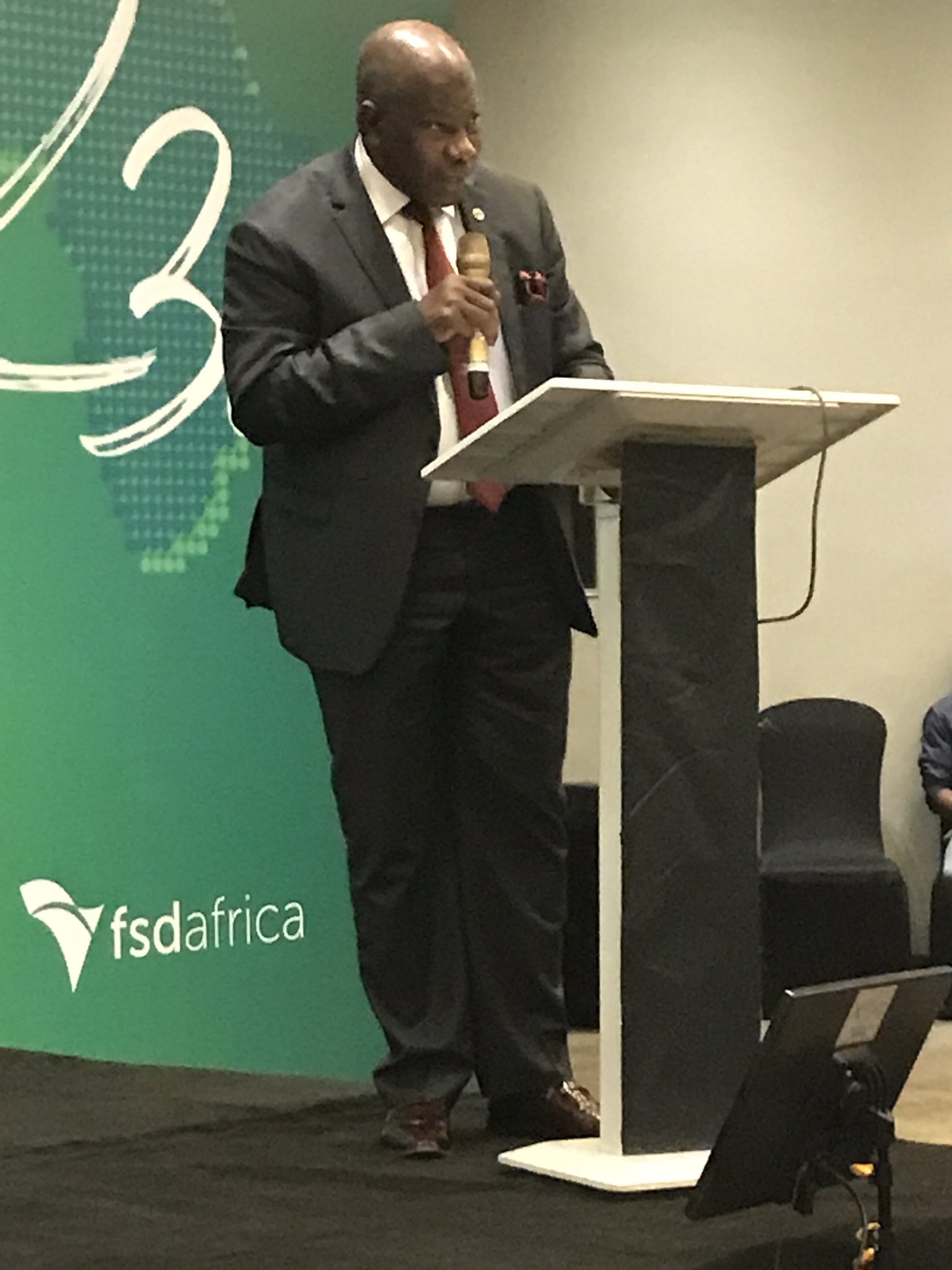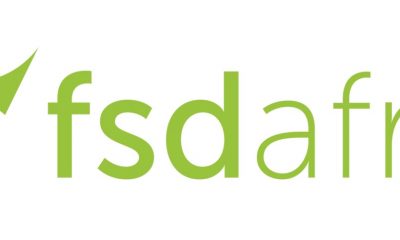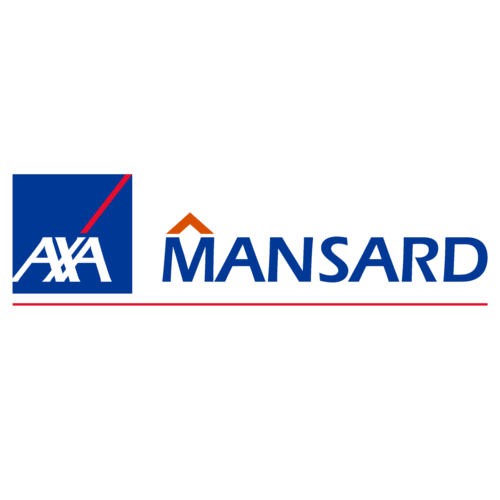Economy
FSD Africa, NAICOM Unveil R3Lab to Mitigate Insurance Regulation Risks

By Adedapo Adesanya
The Financial Sector Deeping Africa (FSD) Africa with the National Insurance Commission (NAICOM) on Wednesday launched the Risk, Resilience and Regulatory Laboratory (R3Lab) in Lagos.
The initiative, which was funded by the United Kingdom (UK) Aid, is aimed at mitigating the impact of specific challenges bedevilling the insurance regulatory environment in Nigeria.
Speaking at the launch, Mr Sunday Thomas, Commissioner for Insurance/CEO, NAICOM said that the R3Lab was set up to explore ways in which collaboration, technology and insurance supervisory capacity building can improve the regulatory effectiveness of Africa’s insurance industry.
“We are all aware of the evolving risks in the African economic space such as climate change, pandemics, digitalisation, inadequate understanding and lack of confidence in the insurance sector.
“Also, the need for new strategies to enhance the capabilities of African insurance supervisory authorities to effectively regulate and protect insurance policyholders.
“The R3Lab offers a three-tiered approach towards creating an enabling regulatory environment and equipping the regulator with sound, proportionate and fit-for-purpose practices.
“Risk, Resilience, and Regulation are the key entry points for the R3Lab to build the technical capacity and skills of the regulator on innovation and sustainable insurance,” he said.
According to him, R3Lab will facilitate the design of customised capacity-building programmes and set up peer-to-peer exchange platforms.
It will also set up comprehensive learning toolkits, a resource centre for data collection and reporting, topical task forces, and forums for insurance supervisors in Africa.
Mr Thomas said that the R3Lab platform is the third joint initiative that has been birthed through FSD Africa’s partnership with NAICOM.
He said the first was FSD Africa’s ongoing support in the review of existing regulations, including identifying and articulating the key steps, framework and tools required by NAICOM for Risk-Based Capital (RBC).
The commissioner stated that the support would enable NAICOM to fully implement a scalable RBC framework in Nigeria.
It would also help it develop an innovation framework to fulfil its dual objectives of market development and policyholders’ protection.
“FSD Africa in furtherance of its support to NAICOM and the Nigerian insurance industry officially launched the second project, tagged the BimaLab Insurtech Accelerator in February 2022.
“The platform selects coaches and mentors insurtech firms, granting these firms access to FSD Africa BimaLab Grant Fund in developing innovative business solutions focused on solving compelling economic or social problems.
“I understand 10 selected participants are already undergoing 10 weeks of intensive mentorship and coaching.
”It is my hope that through the commissioning of these projects and platforms, we create an enabling environment for the development of insurance products which address the day-to-day challenges experienced by Nigerians in the face of environmental-related risks,” he said.
He expressed gratitude to FSD Africa for its invaluable support, noting that the availability of better products is likely to result in better service delivery and increase financial returns to investors.
“In recognition of this, NAICOM aims to achieve greater public trust and confidence in the insurance sector through “Innovation, Distribution and Effective/Efficient Service Delivery” which has been the cornerstone of our strategic focus and action,” he said.
In a presentation, Mr Elias Omondi, Senior Manager, Risk Regulations, FSD Africa shed more light on the purpose of the R3Lab.
He said that it is to encourage and facilitate regulatory interactions between insurance regulators across the continent to strengthen their methodologies and develop solutions necessary to create an enabling regulatory environment.
Mr Omondi said that R3Lab was launched for all African countries, but eight within Sub -Sahara Africa were selected as the pioneer beneficiaries of the projects.
These are Nigeria, Ethiopia, Malawi, Ghana, Kenya, Zimbabwe, Uganda and Rwanda.
Economy
Grey to Cut Cross-Border Payment Costs with New USD Offering

By Adedapo Adesanya
A cross-border payments solutions company, Grey has expanded its business banking platform to include US Dollar corporate accounts, bulk international payments, and USDC stablecoin support, all integrated into a single system.
The company is positioning itself as a low-cost, faster alternative to traditional international banking, particularly for businesses in emerging markets as it enables companies to open US Dollar accounts, receive global payments, and send payouts to 170+ countries, including bulk transfers, within minutes.
Grey aims to solve common cross-border payment challenges, particularly the high transfer costs that often range between 6 and 7 per cent of transaction value, prolonged settlement cycles that can stretch across several days, and the limited access many businesses face when trying to open and operate foreign currency accounts. In addition, companies frequently contend with hidden intermediary fees and poor foreign exchange transparency, both of which undermine cost predictability and effective cash flow management.
By integrating USD business accounts and USDC stablecoin functionality into its platform, Grey enhances its value proposition around faster settlement, clearer pricing structures, improved cost efficiency, and broader global accessibility. The expanded capabilities enable businesses to manage international transactions with greater speed, transparency, and operational control.
“Businesses may operate without borders today, but access to reliable global banking remains uneven, particularly for companies in high-growth markets,” said Mr Idorenyin Obong, Co-founder and Chief Executive Officer of Grey. “We’re closing that gap and enabling businesses to move money faster, with greater transparency and control, wherever their clients or partners are based.”
“When payments are delayed, or costs are unpredictable, growth stalls,” added Mr Joseph Femi Aghedo, Chief Operating Officer and Co-founder of Grey. “Grey eliminates those friction points, giving businesses a faster, simpler way to manage payroll, supplier payments, and partner payouts across borders. Adding USD and stablecoin capabilities makes these benefits accessible to even more customers.”
Established in Africa in 2020, Grey has a presence in key markets, including the United States, the United Kingdom, and Europe, and has recently expanded its services and operations into Latin America and Southeast Asia.
Since its inception, the company has consistently enhanced its services to empower digital nomads worldwide, regardless of location. Grey’s offerings include multi-currency accounts, low-cost international money transfers, a virtual USD card, expense management tools, and robust security measures.
Economy
Quidax, Lisk to Unlock Stablecoins, On-chain Financial Opportunities

By Aduragbemi Omiyale
A partnership designed to expand access to stablecoins and on-chain financial opportunities for everyday users and businesses has been entered into between Quidax and Lisk.
The partnership provides a critical gateway for the developer community, as builders on the Lisk network can now leverage Quidax’s robust digital asset infrastructure to access stablecoins and local currencies at competitive rates.
This institutional-grade infrastructure is designed to power “future-forward” financial products, ranging from neobanks and cross-border payment platforms to regional exchanges and global fintech solutions. It will also allow Quidax customers to trade and move value seamlessly using USDT, USDC, LSK, and Ether (ETH) on the Lisk network.
The collaboration will also accelerate the adoption of Web3 solutions that solve real-world financial challenges for millions of customers across Africa by combining Quidax’s deep local liquidity and compliant framework with Lisk’s scalable L2 technology.
In 2024, Quidax became the first crypto exchange to receive a provisional operating license from Nigeria’s Securities and Exchange Commission (SEC).
“The partnership with Lisk enables us to extend our platform to serve more people and cater to the increasing demand from products and services that want to integrate our stablecoin and digital assets product to build products across Africa,” the Chief Infrastructure Officer at Quidax, Mr Morris Ebieroma, said.
Also commenting, the Ecosystem Lead for Africa at Lisk, Ms Chidubem Emelumadu, said, “Africa represents one of the most critical frontiers for blockchain innovation, where the demand for reliable and inclusive financial tools is urgent.
“Our partnership with Quidax expands access to stablecoins and on-chain financial opportunities for everyday users and businesses. At the same time, it gives founders building on Lisk the critical infrastructure they need to create solutions that can scale meaningfully across the continent,” she added.
Economy
Customs Urges Freight Forwarders to Adopt Automated Licence, Permit System

By Adedapo Adesanya
The Nigeria Customs Service (NCS) has urged freight forwarders to adopt its automated Licence and Permits Processing system to reduce the cost of doing business.
This advice was given by the Assistant Comptroller-General of Customs, Mr Muhammed Babadede, during a stakeholders’ engagement on automation held in Lagos on Monday.
He noted that the reform responds to longstanding demands for faster, more transparent and simpler procedures for industry stakeholders, disclosing that Comptroller-General of Customs, Mr Bashir Adeniyi, has approved the full automation of the service’s licences and permits processes.
“For years, stakeholders dealt with paperwork, long queues and uncertainty from manual processing. Those days are coming to an end.
“This sensitisation is across all zones. The goal is to ensure stakeholders understand the automated system before implementation,” Mr Babadede said.
He said automation would enable applications and renewals from offices or mobile phones, eliminating visits to customs formations, assuring stakeholders of a fair and consistent process, and reducing errors associated with manual documentation.
He said automation would improve record-keeping, supervision and service delivery without increasing pressure on officers.
The Deputy Comptroller-General, Tariff and Trade, CK Naigwan, also represented by Mr Babadede, reiterated management’s commitment to seamless implementation.
Meanwhile, the Comptroller of Customs for Licence and Permit Unit, Mrs Ngozika Anozie, praised the Comptroller-General for driving innovation within the Service, saying the automation aligns Customs procedures with global best practice and strengthens institutional efficiency.
According to her, the reform reflects the three-point agenda of the Chairman of the World Customs Organisation, Mr Adeniyi, centred on consolidation, collaboration and innovation.
She said the system would enhance the ease of doing business in the maritime sector and boost national revenue generation.
“Automation will cut business costs and reduce travel risks for stakeholders
“They will no longer travel repeatedly to Abuja, paying for transport, hotels and feeding to process licences and permits,” she said, adding that the platform would automatically reject fake documents and accept genuine submissions, curbing fraudulent practices.
“The CGC is determined to sanitise the system, and we are committed to achieving that objective,” Mrs Anozie said.
On his part, the Assistant Superintendent of Customs, Mr Ibrahim Usman, said the Licence and Permit Unit operates under the Tariff and Trade Department.
He explained that the unit ensures proper issuance of licences and permits and compliance with import regulations.
Mr Usman said all licences and permits expire on December 31 of their issuance year.
He added that the portal would become fully operational after nationwide sensitisation, with stakeholders duly informed.
Customs Area Controller, Tincan Island Command, Mr Frank Onyeka, thanked stakeholders for their continued support.
He urged them to take the exercise seriously to achieve seamless processing across Customs operations.
Stakeholders raised concerns about online payment integration and potential technical disruptions.
Officials addressed the questions and pledged continued engagement to ensure smooth implementation nationwide.
-

 Feature/OPED6 years ago
Feature/OPED6 years agoDavos was Different this year
-
Travel/Tourism10 years ago
Lagos Seals Western Lodge Hotel In Ikorodu
-

 Showbiz3 years ago
Showbiz3 years agoEstranged Lover Releases Videos of Empress Njamah Bathing
-

 Banking8 years ago
Banking8 years agoSort Codes of GTBank Branches in Nigeria
-

 Economy3 years ago
Economy3 years agoSubsidy Removal: CNG at N130 Per Litre Cheaper Than Petrol—IPMAN
-

 Banking3 years ago
Banking3 years agoSort Codes of UBA Branches in Nigeria
-

 Banking3 years ago
Banking3 years agoFirst Bank Announces Planned Downtime
-

 Sports3 years ago
Sports3 years agoHighest Paid Nigerian Footballer – How Much Do Nigerian Footballers Earn


















